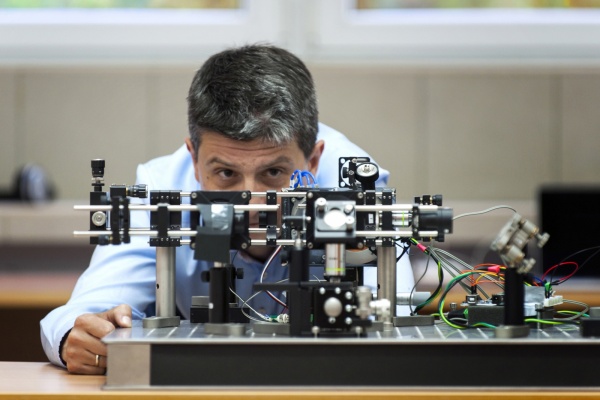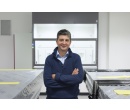Winner of the top scientific prizes in Poland to create a new department at IPC PAS
Advanced methods of optical imaging will be the main topic of research of the Department of Physical Chemistry of Biological Systems, cominginto being at the Institute of Physical Chemistry of the Polish Academyof Sciences under the prestigious European ERA Chairs grant.The new department will be headed by Prof. Maciej Wojtkowski, physicist and winnerof the “Polish Nobel Prize” – the Award of the Foundation for Polish Science.
Under the prestigious European Research Area ERA Chairs grant at the Institute of Physical Chemistry of the Polish Academy of Sciences (IPC PAS) in Warsaw, a new department is coming into being. Its head is the outstanding scientist: Prof. Maciej Wojtkowski, a physicist dealing with advanced methods of optical imaging, winner of the “Polish Nobel Prize” – the Award of the Foundation for Polish Science. Prof. Wojtkowski was selected in an international competition, assessed by a group of scientists from Poland, Great Britain, Belgium and the Netherlands, including winners of prestigious grants of the European Research Council (ERC).
“Professor Wojtkowski's research fits perfectly into the range of scientific interests of our Institute and, no less importantly, in the future it will allow for their expansion. When such an eminent scholar joins the team, it is really hard not to be happy,” says Prof. Marcin Opałło, director of the IPC PAS.
Prof. Maciej Wojtkowski was born in Włocławek. He completed his studies in physics at the Nicolaus Copernicus University. He received his doctorate in 2003 and his Habilitation in 2010. In both cases, the subject of his work was research in the field of optical tomography, particularly in the context of medical applications. He carried out his post-doc internships at the Massachusetts Institute of Technology in Cambridge, USA. As part of scientific exchanges he has worked, among others, at the University of Vienna, the University of Kent in Canterbury and the University of Western Australia in Perth. In 2014, he was appointed professor. He is the author or co-author of over 100 scientific papers and several patents and patent applications. In 2012 he received the Award of the Foundation for Polish Science for the design and construction of a tomograph for non-invasive and non-contact optical tests of the interior of the eye.
“In our department we intend to deal with methods of controlling light so that it can effectively penetrate complex structures, especially biological samples. We also want to take on a new challenge and develop methods to visualize objects in motion. Using these techniques, we can better observe, for example, the thermodynamics of phenomena occurring inside cells or processes in droplets moving through channels of microfluidic systems,” explains Prof. Wojtkowski and adds: “Not only science can benefit from this work. If everything goes to plan, who knows if already in the near future, all we will need to examine the eye or blood vessels will be an adequately modified smartphone?”
You can read an extensive interview with Prof. Wojtkowski concerning the subject matter of his research (and not only) on the IPC PAS website at:
http://ichf.edu.pl/press/2016/10/IChF161026c_interview.pdf
The 2.4 million euro European ERA Chairs grant was awarded to the Institute of Physical Chemistry last year as one of only three academic institutions in Poland. Grants of this kind are part of Horizon 2020, the largest European funding programme for research and innovation, with a budget of almost 80 billion euros. The main task of ERA Chairs grants is to attract the best scholars to leading academic institutions located in countries with inadequate expenditure on research and development. The long-term goal is to raise the level of competitiveness of scientific departments with high potential to a level enabling effective competition with the leading scientific centres in both Europe and the world.
“The financial potential of our ERA Chairs grant is very large and permits us to think about a really rapid launching of the new department. At the moment, work on the initial equipping of our laboratory is nearing completion and recruitment to the research team is already at an advanced stage,” emphasizes Prof. Wojtkowski.
The first studies on new optical imaging techniques are just beginning at the IPC PAS. The official opening of the new laboratory, signifying the actual beginning of activity of the Department of Physical Chemistry of Biological Systems, is scheduled for this autumn.




